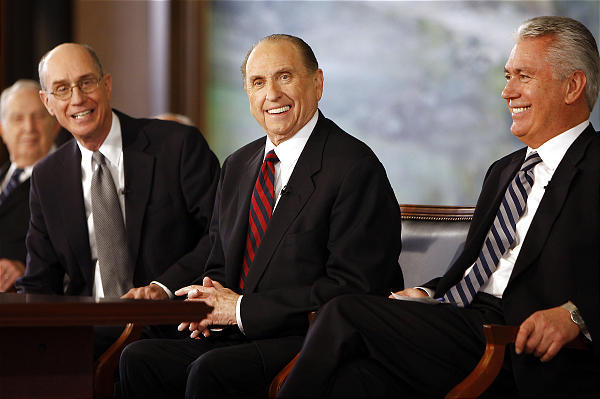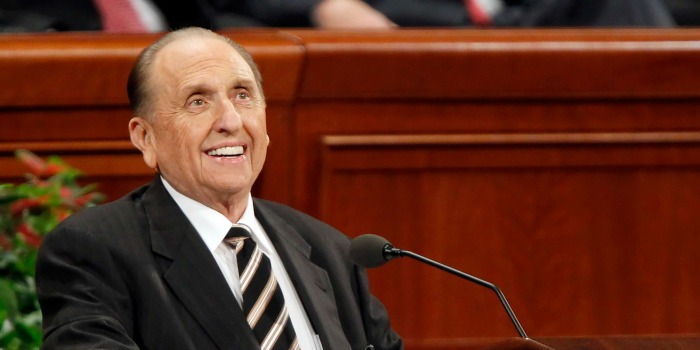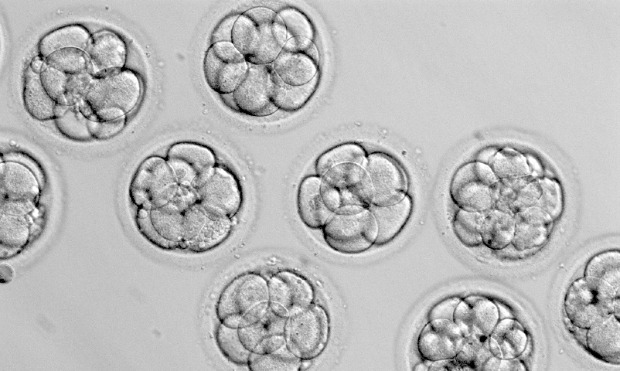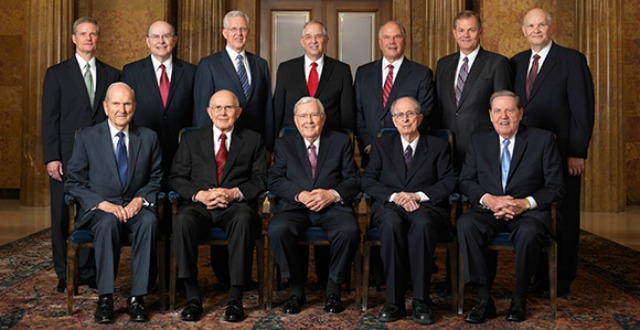Question
Gramps,
Is the President of the Church ordained or set apart? Is the position a separate office in the Priesthood or a calling?
Dave
Answer
Dear Dave,
“The president of the Church”, like quorum and auxiliary presidents, is not itself a separate Priesthood office. Rather, the man who holds that calling, is the “Presiding High Priest over the High Priesthood of the Church” (D&C 107:66).The entire context of this revelation on Priesthood organization further clarifies the office of Priesthood presidents.
“Verily, I say unto you, saith the Lord of Hosts, there must needs be presiding elders to preside over those who are of the office of an elder; And also priests to preside over those who are of the office of a priest; And also teachers to preside over those who are of the office of a teacher, in like manner, and also the deacons—” (D&C 107:60-62).
Please note that the presidents of these various quorums are selected from that quorum – that is to say, the president of the elders quorum is himself an elder. There is no separate office in the priesthood for this calling. The same is true for high priests, seventies, apostles, deacons, and teachers.
In a later revelation, the names of specific individuals were presented to be sustained for these offices. For instance, “I give unto you John A. Hicks, Samuel Williams, and Jesse Baker, which priesthood is to preside over the quorum of elders” (D&C 124:137). This same revelation specifies that those so called to presidencies are “officers belonging to [God’s] Priesthood” (D&C 124:123). Returning back to the “Revelation on Priesthood”, we find a similar term used to describe the First Presidency:
“Of the Melchizedek Priesthood, three Presiding High Priests, chosen by the body, appointed and ordained to that office, and upheld by the confidence, faith, and prayer of the church, form a quorum of the Presidency of the Church.” (D&C 107:22).
The office here spoken of is not an office of the Priesthood (in the sense of elder, high priest, apostle, seventy, or patriarch), but an office in the sense of a role or calling. In this sense, presidents hold a separate office in their quorums or church but not a separate office of the Priesthood. We still hear this usage every six months when General Conference is introduced “with speakers selected from the General Authorities and General Officers of the Church”. The General Sunday School President, for an example of a General Officer, certainly holds a separate office in the Church but not a separate office in the Priesthood.
Seeing that there is no separate Priesthood office, why then is it said that the Presiding High Priests are “ordained”? This is the same term that appears with regards to Emma’s calling (see D&C 25:7) and I think the same answer will suffice.
“The term ‘ordain’ was used generally in the early days of the Church in reference to both ordination and setting apart, and, too, correctly according to the meaning of the word. Men holding the Priesthood were said to have been ‘ordained’ to preside over branches and to perform special work. Sisters also were said to have been ‘ordained’ when they were called to some special duty or responsibility. In later years we developed a distinction between ordain and setting apart. Men are ordained to offices in the Priesthood and set apart to preside over stakes, wards, branches, missions, and auxiliary organizations. The sisters are set apart—not ordained—as presidents of auxiliary organizations, to missions, etc. This saying that Emma Smith was ‘ordained’ to expound scripture, does not mean that she had conferred upon her the Priesthood, but that she was set apart to this calling, which found its fulfillment in the Relief Society of the Church” (Church History and Modern Revelation by Joseph Fielding Smith, 1:126).
We see this term in modern times when the principles outlined are exercised. At the death of President Lee, “Elder Ezra Taft Benson … made the formal motion that the First Presidency of the Church be reorganized and that Spencer W. Kimball be sustained, ordained, and set apart as the president, prophet, seer, revelator, and as trustee-in-trust of the Church. This motion was seconded and unanimously approved. … Then, with President Benson being mouth, in a beautiful prayer and blessing, Spencer Woolley Kimball was ordained and set apart as prophet, seer, and revelator and president of The Church of Jesus Christ of Latter-day Saints” (Chosen of the Lord by N. Eldon Tanner, April 1974 General Conference). As President Benson has long since died, I have not been able to ask him about his usage of “ordain” in this context. It’s possible he used the word, since it is the one specified in scripture, in conjunction with the more common and well-understood “set apart” for clarity. It’s also possible that he used in in the civic or governmental sense, meaning “to establish or order by appointment, decree, or law: enact” (as demonstrated by the preamble to the United States Constitution which “ordain[s] and establish[es]” that document). This is not the scriptural usage, but it is a proper usage in modern times for the Quorum of the Twelve (the presiding body of the Church in the absence of a First Presidency) to ordain or establish via ordinance Brother Nextinline to be President of the Church.
Gramps







